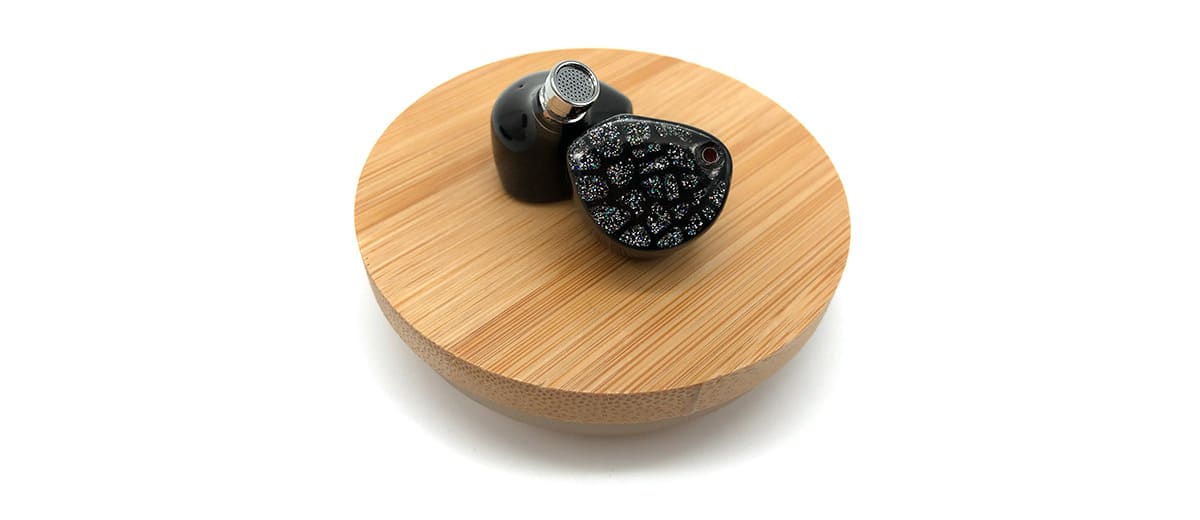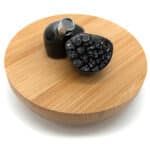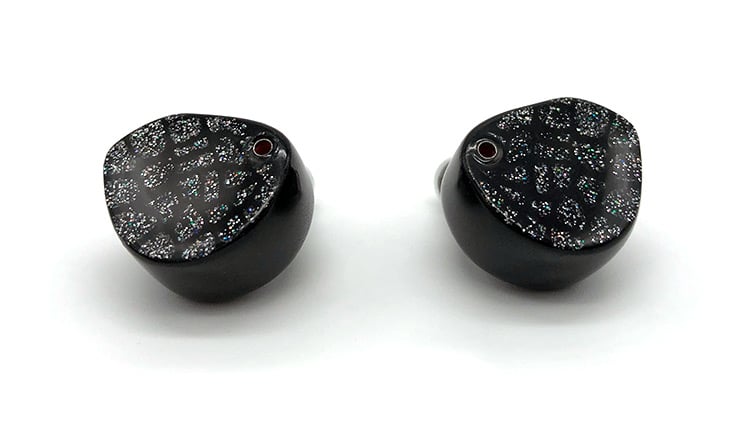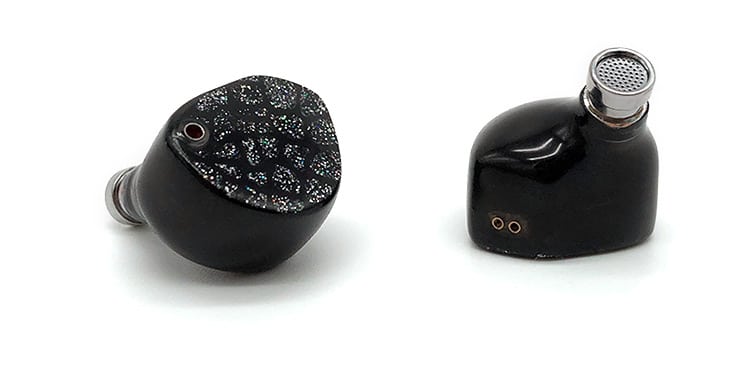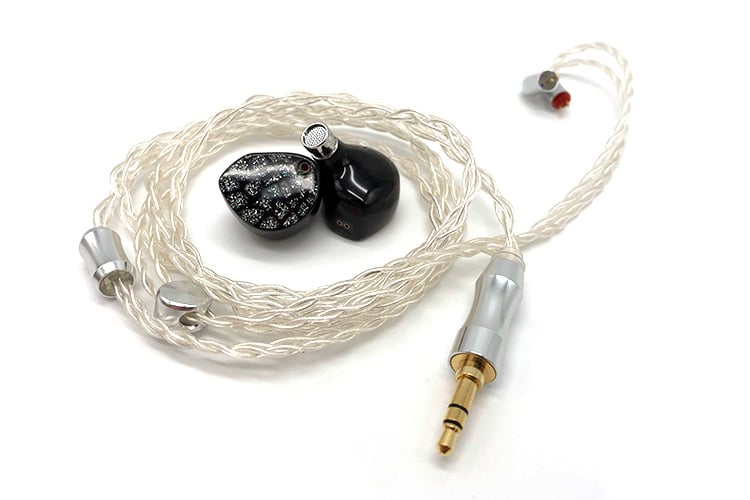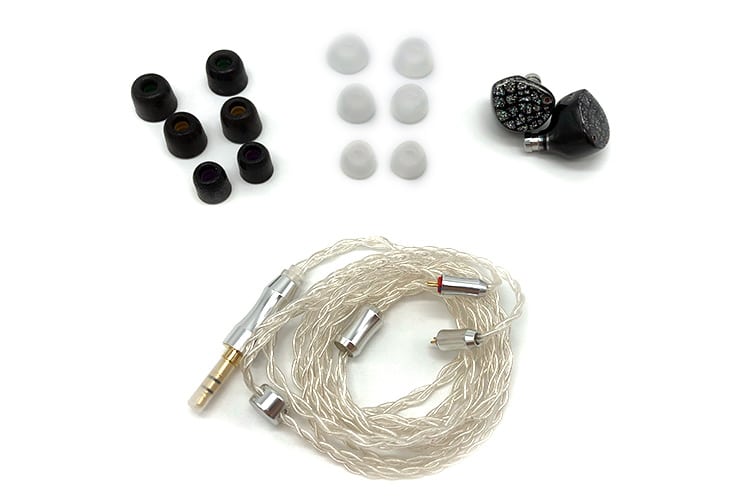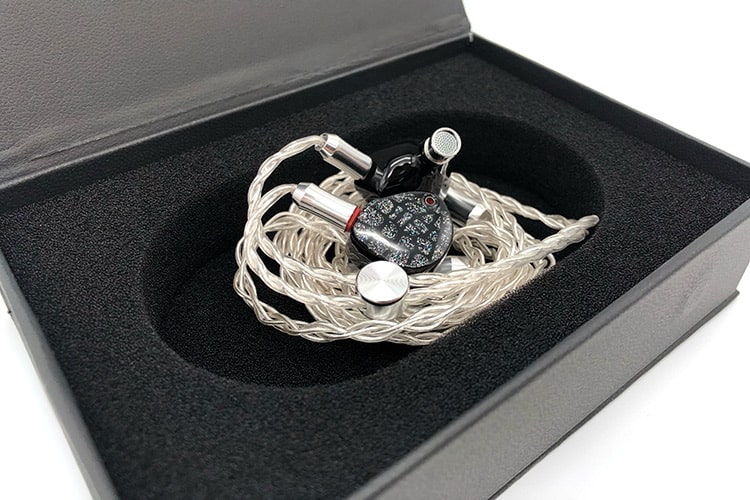In our latest feature, we review the THOR Mjölnir MKII which is a new universal in-ear monitor featuring a 12.56mm Fusion Diaphragm dynamic driver. It is priced at $399.
Disclaimer: This sample was sent to us in exchange for our honest opinion. Headfonics is an independent website with no affiliate links or status. We thank Linsoul for this opportunity.
Click here to read more about Linsoul distributed products that we have previously covered on Headfonics.
Note, that this article follows our latest scoring guidelines which you can read here.
THOR, the IEM producer and not Hollywood’s long-haired god of thunder, is the brainchild of a freelance engineer who found a huge following in the local DIY community.
And by working closely with external services to design its drivers, THOR successfully released the original Mjölnir IEM, all handcrafted and limited only to 100 pieces.
Now for its second take on the same thunderous bass promise, the Mjölnir MKII comes with several tuning refinements and an all-new Fusion Diaphragm replacing the beryllium drivers of the original.
Good on paper, the question that remains is if these improvements are worth the $200 increase in asking price.
Tech Highlights
Returning not without a bang, THOR fitted the Mjölnir MKII with a 12.56mm Fusion Diaphragm dynamic driver which in my book is a pretty cool name. Consisting of three key elements, this driver has an extended frequency range from a low 8Hz up to a proper 40kHz.
The Fusion Diaphragm is composed of Diamond-Like Carbon (DLC), Polyetheretherketone (PEEK), and Polyurethane (PU) each carefully considered to tackle sub-bass impact, midrange detail, and treble extension. Putting these three together is a new concept allowing for a complementary interaction and improvement of the three components.
Keeping with the original Mjölnir’s Tesla magnets, the Mjölnir MKII is designed with 1.6T magnets physically pulling and repelling the earpieces when I was playing around with it. The strong magnets are the special ingredient for its characteristic bass response.
Not relying upon usual dampening techniques, THOR 3D printed an acoustic chamber for the Mjölnir MKII with a front micro-vent and rear Knowles dampening device for pressure relief.
Design
Unlike the proud advertising of the hand-cut genuine Abalone faceplate on the first iteration of the Mjölnir, they’re somehow more tightlipped with the inspiration of the MKII design. But to their credit, the Mjölnir MKII is just as much of a fashion statement only taking away some intensity in colors to give it a more subdued sophistication.
Looking at the Mjölnir MKII is like observing a tranquil night sky full of stars. It is a twist in character with how it is named and tuned.
I don’t think the MKII is unique in each piece since comparing this unit with online samples, likeness in the pattern is obvious. But what can’t be easily observed with pictures is the presence of depth in the glittering shades.
The rest of the housing is made with a dark tinted translucent resin that somehow reminded me of candy. But, one thing worth noting is that interacting with the casing almost always gets it filled with fingerprints.
Comfort & Isolation
With a pretty average size, the shape of the Mjölnir MKII did well in keeping strong points of contact without seeming loose or tight. The insertion depth is also just enough plus the ear guide has positive feedback in supporting the IEM when movement causes it to dislodge on some occasions.
Using the memory foam tips, isolation is much improved over silicone. When listening to outside noises without music, the volume is lowered by a few percent but probably because of the Knowles filter the dampening factor is not as strong as expected.
Tips
Enabling THOR to focus on their agenda to design a great pair of IEMs, they found a solution by using ear tips from another reputable audio brand, ThieAudio.
The Mjölnir MKII can be experienced two ways out of the box, with regular silicone tips or by using the taller and slimmer memory foams. For an easier time putting on the silicone tips to the wide nozzle of the Mjölnir MKII, the stem is made stiff, unlike the more supple memory foams.
Stock Cable
Mjölnir MKII is paired with a custom silver-plated OCC copper enclosed in transparent sleeving to add a hint of sparkle just like its faceplate. With an already dark IEM housing, THOR went for a brighter if not cleaner look with its cable choice for a nice complement in visuals.
To be honest, I feel that the cable is pretty light and springy in the context of price but usability is great from its pliant nature. And continuing its tasteful use of silver in the 0.78mm 2-pin terminals and the single-ended 3.5mm jack, the only real snag is the loose chin-slider that will not stay put no matter what.
Packaging & Accessories
If you are like me and take the time to read the text written in the packaging before finally unwrapping or opening the box, well the Mjölnir MKII will put you in a loop. The black flip-to-open container came without the usual plastic wrap in retail products and is missing any outside indication of what’s inside.
Opening the magnetized lid, everything inside is placed together in an oval pocket cut from the protective foam glued to the box. The stock silver cable is already attached to the Mjölnir MKII but the two sets of ThieAudio ear tips are wrapped in a translucent plastic pouch.
Aside from the essentials, no case, manual, or additional marketing materials are present. I won’t complain though as this might have helped keep the cost down as the Mjölnir MKII is already pushing the $400 mark.
Sound Impressions
The silicone ear tips were used in the formulation of the sound impressions. How the sound is changed by swapping tips will be discussed separately.
Summary
Reading up about the Mjölnir MKII kept me on the fence about whether the bass would be too heavy. And while yes, the Mjölnir MKII is not neutral by any means, the difference is that THOR is not a commercialized brand but an audiophile to the core maker.
Relying on the warmth and gusto of its 12.56mm driver, the low-end is deep and strong, which sometimes made me question if the slam is physically shaking the IEM. However, the Fusion Diaphragm does know when to settle down to not drown the rest of the song.
I find the midrange clear enough for details to come through letting vocals and instruments shine and not get dampened by the bass. Likewise, the treble region is not to be ignored as it doesn’t get bogged down by piercing notes. Instead, an airy and expansive picture was felt.
Timbre
THOR’s Mjölnir MKII’s bass has a mix of anger and kindness. Bass guitars have heft and a flowy bite while bigger blows from drums slam heavily and disperse to a wide and roomy presence.
Subtleties in the lower region fight for survival as it grapples with the immense energy of notes. Not saying it lacks in detail, it’s just the fruity but not too sweet accompaniment of instruments that bring you in for an enjoyable ride instead of analyzing music.
Leaving the vocal region to sound organic and not bloated, expect smooth yet textured whispers that open up in clarity, especially in calmer acoustic songs. It tweaks timbre to a hint of warmth just keeping it shy of sounding thin.
Piano and guitars have a gentle ring that is not too forward or bright. It is replaced with muscle causing dialing down of fainter notes.
With a dynamic horn ensemble, the Mjölnir MKII didn’t lose control keeping great definition and air in a tall and immersive manner. It did tread the line of sibilance at times but its dispersion helped lighten the pressure.
What I have mixed feelings about is when violins come to the fore. While I do enjoy the pristine and shimmery body it gives to the strings, it lacks the emotional presence I’m looking for making it seem detached and isolated.
Staging
Without the intention to sway the forward stage farther than necessary, vocals and center image is kept close. Layering is quite skilled though as I can distinctly hear instruments placed beyond the singer’s voice.
The wider than deep stage also benefits the Mjölnir MKII since it allows the bass to do its job without overshadowing the singer unless the beat happens right in the middle as well.
Combining the stage with a tall soundscape, the positioning of a live audience doing a lively round of applause emphasizes its imaging proficiency. But on busier tracks, and mostly with electronic or hip-hop, the placement does suffer a little in accuracy.
Ear Tips
Alternating to the black memory foam tips is an experience in itself as it varied the sound in more than a couple of ways.
The most immediate difference is the increase in stage presence placing instruments further. This opened up the vocal region for breathier composition while also tweaking the body of the violin to have a bit of added heft.
And if you find the silicone tips too bass-heavy, the memory foams offer a slightly less enthusiastic bass presence. It gets slimmer and smoother but compared to the silicone tips is not as delineated.

